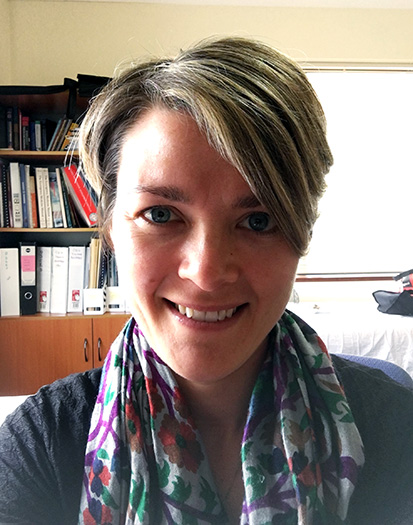UWA and me

I studied Medicine at UWA 1998-2003 and was one of the seven inaugural Rural Clinical School of Western Australia (RCSWA) students in 2002. I spent three months in Kalgoorlie doing GP and obstetrics and gynaecology placements with two friends as part of the RCSWA pilot. It was a transformative period for me.
As a student, I was very involved with UWA life: a member of Guild Council in 2001, a WAMSS committee member in 2002 and 2003, and I participated in Uni Camp for Kids picnics and camps throughout my time at UWA. I started working for the RCSWA as a medical coordinator during a year spent in Broome working for Kimberley Aboriginal Medical Services in 2010/11. In 2012, I took up the role of lead medical coordinator in Busselton. I feel very grateful and privileged to remain part of the RCSWA family.
Inequality and self-care in rural communities
My passion is providing person-centred, holistic health care to my patients and for the community at large. I am also passionate about inspiring my students to do the same. I am acutely aware of the impact that social determinants of health have on rural communities. Inequalities are real and make it difficult for rural doctors to improve people’s health in the ways they would like.
I believe that prevention and health promotion are key to making a difference and, consequently, I focus a lot on the importance of self-care with my patients and students, including stress management, good nutrition, movement and healthy relationships.
I am currently facilitating an eight-week Mindfulness Program with the 2017 RCSWA students because I believe students and doctors need to be taught about the benefits of slowing down, being compassionate and taking care of themselves.
Growing in leaps and bounds
I have welcomed the inclusion of the LEAPS themes (Leader, Educator, Advocate, Professional and Scholar) into the RCSWA curriculum. The RCSWA encourages our students to reflect on each of these themes during their clinical placements and tutorial sessions. We support our students to become involved with local community organisations and activities where they can take on each of the LEAPS roles. Many RCSWA sites have local advisory groups that facilitate this.
In Busselton, we have an excellent relationship with our local shire and members of Parliament, who attend our meetings and invite our students to participate in a range of community events, including research for the famous Busselton Health Study. The students are assessed on these themes as part of their academic portfolio. I feel that the RCSWA provides our students with unique opportunities to grow personally and professionally into the societal leaders the world needs.
About Sarah
Sarah Moore was there when the Rural Clinical School of Western Australia was born – one of the original seven volunteers who took part in the pilot program in 2002. It convinced her of the career and lifestyle fulfilment that lay ahead in rural and remote medicine.
After graduation, Sarah completed an internship at Fremantle Hospital and then embarked on a career that took her to such places as Broome, Kununurra, Darwin and Katherine in the Northern Territory.
With GP obstetrics as her chosen pathway, she completed a Diploma with the Royal Australian and New Zealand College of Obstetricians and Gynaecologists, the GP Obstetrics Mentoring Program and Advanced Rural Skills in Aboriginal health.
Following the birth of her first daughter Alice in 2011, Sarah began work with the WA Country Health Service Postgraduate Medical Education Unit before settling in Dunsborough on the south west coast and beginning general practice in Busselton.
Just months later, she added teaching at the Rural Clinical School to her schedule as mother and GP before the birth of baby Sascha in 2013.
And it is that schedule of family, general practice obstetrics and RCS that she continues, while also finding time to establish groups such as the South West Holistic Health Practitioner Network, bringing together GPs, nurses, chiropractors, naturopaths and “anyone who has a holistic approach to health.”